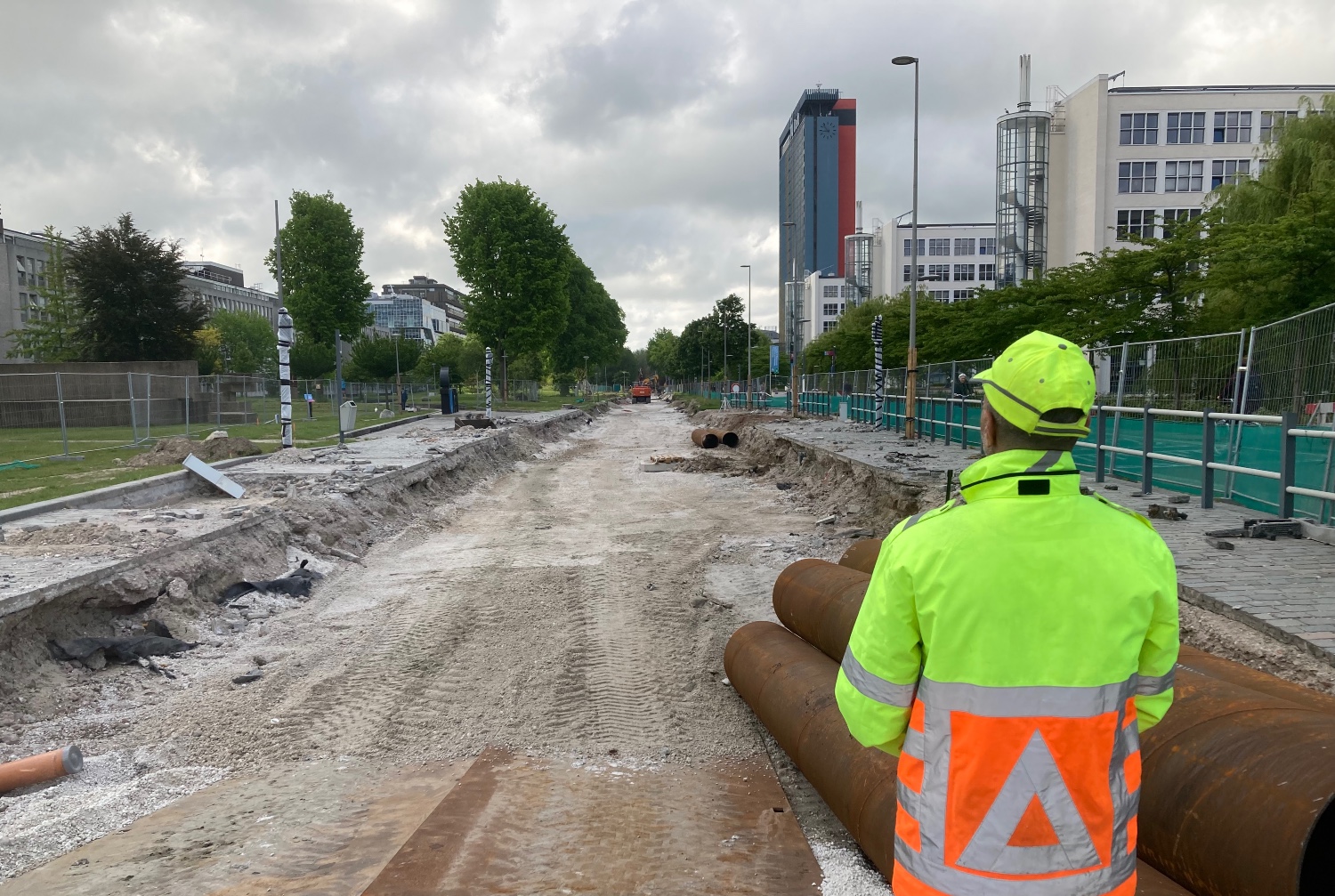In a motion of censure, the city council calls on TU Delft and the Rotterdam-The Hague Metropolitan Area to allow tram 19 to run in the evenings and on weekends and holidays.
Twenty years after the initial plan, the world's most low-fault tramway is under construction across campus. (Photo: Jos Wassink)
Tram 19, which is expected to start operating in early 2024, will have a limited timetable. The tram will only run on weekdays between 07:00 and 19:00. Eelco de Vries, spokesperson for Campus Real Estate and Facilities Management (CREFM), confirmed the curtailment. The Rotterdam-The Hague Metropolitan Area (MRDH) chose to do this ‘based on input from municipalities and other stakeholders’, De Vries writes.
The implementation agreement between MRDH and TU Delft stipulates that there will be no tram traffic on campus after 19:00 ‘because this allows TU Delft to conduct research in the evening hours and at night whose sensitivity to vibrations and electromagnetic fields is too high for tram use during that time period’.
This is a strange statement because the very reason that no cost and effort were spared was to minimise vibrations and magnetic fields. “You won’t find a tram track like this anywhere,” Project Manager Dick Huybens had previously said in Delta. Have all these innovations now been for nothing?
‘I am also very surprised by that message,’ e-mails Pieter Kruit about the restriction related to vibrations and electromagnetic fields. Together with Dick van Bekkum (EM power systems), he is the architect of the EMRS 2 electromagnetic reduction system with which the tramline will be equipped. ‘Surely they could have at least waited a while to see whether it works or not,’ Kruit writes about the curtailment of the timetable.
As Kruit and Van Bekkum cannot place the interference argument, they suspect other motives. Van Bekkum suggests: ‘MRDH has looked at (what in the transport world is called) transport value. How many people do they expect to serve with a particular timetable. And that then leads to decisions about when to ride/not ride.’
“This timetable means that the campus will soon be even less accessible by tram than before when there were buses,” says Works Council (OR) member Herman de Wolff. It was at the joint OR and Student Council meeting with the Executive Board on 11 May 2023 that he first heard about the limited timetable and shared his surprise with Delta.
The restricted timetable led to widespread disapproval in the municipal council on 16 May. In a unanimously supported motion of censure, the city council asked the municipal executive to convey its displeasure to the boards of TU Delft and MRDH. The municipal council felt that these parties should renegotiate to allow the tram to also run in evenings, weekends and during school holidays.
At the same meeting, the city council called on TU Delft and MRDH to extend the tram line to Campus South. If this cannot be done on the Mekelweg due to sound and vibrations, it should continue along the Huismansingel from the proposed terminus at the Schoemakerstraat. This motion received broad support with 33 out of 38 votes.
In response to the motion of censure, De Vries wrote that ‘MRDH is investigating possibilities for additional transport after 19:00’.
Heb je een vraag of opmerking over dit artikel?
j.w.wassink@tudelft.nl


Comments are closed.